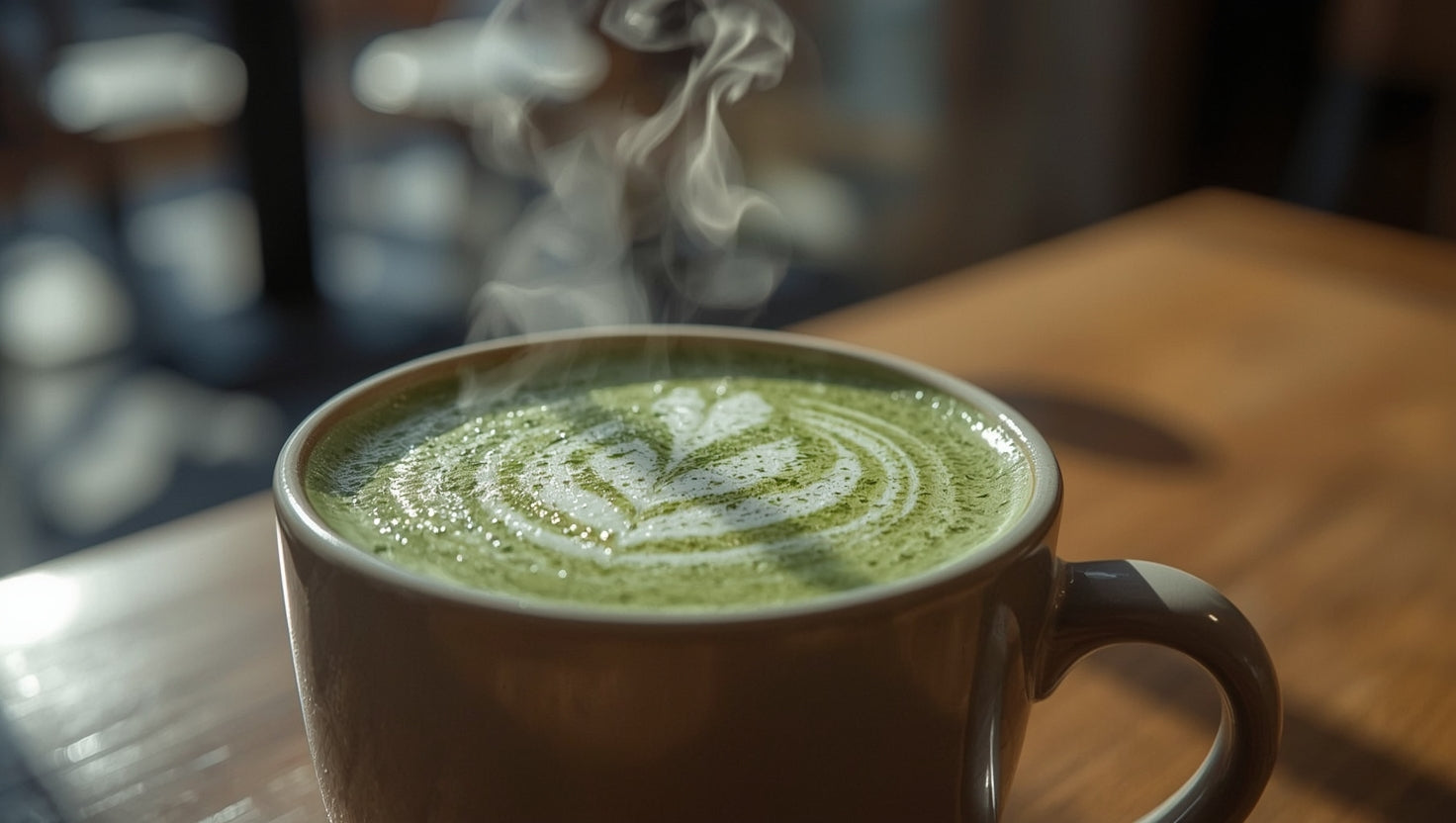
Unsweetened Cocoa Powder: The Superfood Hiding in Your Pantry
When it comes to pantry staples with surprising health benefits, unsweetened cocoa powder stands out as one of nature's most remarkable foods. Far more than just an ingredient for desserts, this concentrated form of cacao delivers an impressive array of nutrients, antioxidants, and versatile culinary applications. At Coracao Confections, we believe in harnessing the power of pure, organic cacao in all its forms – including the humble yet mighty unsweetened cocoa powder.
In this comprehensive guide, we'll explore everything you need to know about this superfood ingredient: its nutritional profile, health benefits, culinary uses, and how to select the highest quality powder for your kitchen and wellness routine.
What Is Unsweetened Cocoa Powder? Understanding the Basics
Unsweetened cocoa powder is made by fermenting, drying, roasting, and grinding cacao beans, then removing most of the fat (cocoa butter). The remaining solids are processed into the fine powder we know as cocoa. Unlike hot chocolate mixes or sweetened cocoa products, pure unsweetened cocoa powder contains no added sugar, milk products, or other additives.
There are two main types of unsweetened cocoa powder you'll encounter:
Natural Cocoa Powder
This is the purest, most unprocessed form of cocoa powder. It has a light brown color, robust chocolate flavor, and slightly acidic profile (pH 5.3-5.8). Natural cocoa powder works beautifully in recipes calling for baking soda, as the two react to create lift in baked goods.
Dutch-Processed Cocoa Powder
Also called alkalized cocoa, this variety is treated with potassium carbonate to neutralize its acidity. It has a darker color, milder flavor, and dissolves more easily in liquids. Dutch-processed cocoa works well in recipes calling for baking powder rather than baking soda.
At Coracao Confections, our Organic Cacao Powder represents the highest standard of natural, minimally processed cacao. Made from organic Criollo cacao beans, our powder offers maximum nutritional benefits while delivering exceptional flavor for both culinary and wellness applications.

The Impressive Nutritional Profile of Unsweetened Cocoa
Unsweetened cocoa powder is remarkably nutrient-dense, offering an array of vitamins, minerals, and beneficial plant compounds in a low-calorie package. Just one tablespoon (5 grams) of unsweetened cocoa powder typically contains:
- 12 calories
- 1 gram of protein
- 0.7 grams of fiber
- 3.6 mg of magnesium (1% DV)
- 0.2 mg of iron (1% DV)
- 22 mg of phosphorus (2% DV)
- 63 mg of potassium (1% DV)
- Small amounts of calcium, zinc, and copper
But the true nutritional power of cocoa lies in its extraordinary concentration of beneficial plant compounds:
Flavanols and Polyphenols
Cocoa contains some of the highest levels of flavanols found in any food. These powerful antioxidants are responsible for many of cocoa's health benefits, particularly its effects on cardiovascular health. Research shows that minimally processed cocoa powder can contain up to 50 mg of flavanols per gram.
Theobromine
This naturally occurring compound is responsible for cocoa's mild stimulant effects. Unlike caffeine, theobromine provides a gentler, longer-lasting energy boost without the jitters or crash often associated with coffee.
Phenylethylamine (PEA)
Often called the "love molecule," PEA is a compound that can stimulate the release of endorphins and dopamine in the brain, potentially contributing to cocoa's mood-enhancing effects.
For a more indulgent way to enjoy these nutritional benefits, our Unsweetened Dark Sugar Free Chocolate 99% offers the pure experience of cacao in a convenient bar form.
7 Science-Backed Health Benefits of Unsweetened Cocoa Powder
The health benefits of unsweetened cocoa powder are well-documented in scientific literature. Here are seven ways this superfood may support your wellbeing:
1. Cardiovascular Health Support
Perhaps the most well-studied benefit of cocoa is its positive effect on heart health. The flavanols in cocoa help promote the production of nitric oxide, which relaxes blood vessels and improves blood flow. Regular consumption of high-flavanol cocoa has been linked to:
- Modest reductions in blood pressure
- Improved blood vessel function
- Enhanced cholesterol profiles with increased HDL ("good") cholesterol
- Reduced risk of heart disease
For more on these benefits, check out our detailed article on Benefits of Dark Chocolate.
2. Cognitive Function Enhancement
Cocoa's flavanols may benefit brain health by increasing blood flow to the brain and protecting neurons from oxidative damage. Research suggests that regular consumption of flavanol-rich cocoa may:
- Improve working memory
- Enhance cognitive performance in the elderly
- Support healthy brain aging
- Protect against neurodegenerative conditions
3. Blood Sugar Regulation
Contrary to what you might expect from a chocolate-derived ingredient, unsweetened cocoa may actually help regulate blood sugar levels. Studies suggest that cocoa flavanols can:
- Improve insulin sensitivity
- Slow carbohydrate digestion and absorption
- Moderate blood glucose levels after meals
This makes unsweetened cocoa powder a smart addition to the diet for those concerned about blood sugar management.
4. Mood Enhancement
There's scientific reason behind the mood boost many people experience from cocoa. Compounds in cocoa may influence neurotransmitters associated with mood regulation and pleasure, including:
- Serotonin
- Dopamine
- Endorphins
- Anandamide (the "bliss molecule")
For a delicious mood-boosting beverage, try our Rich Dark Drinking Chocolate, which provides all these beneficial compounds in a comforting cup.

5. Anti-Inflammatory Properties
Chronic inflammation underlies many modern health conditions. The polyphenols in cocoa exhibit potent anti-inflammatory effects that may help mitigate this risk factor. Cocoa has been shown to:
- Reduce levels of inflammatory markers in the blood
- Inhibit the activation of inflammatory pathways
- Support a balanced immune response
6. Skin Health Protection
Cocoa's antioxidants don't just work internally – they may benefit your skin as well. Research suggests that regular consumption of flavanol-rich cocoa can:
- Protect against UV damage
- Improve skin hydration and density
- Enhance dermal blood circulation
- Reduce skin roughness and scaling
7. Digestive Health Support
Emerging research suggests that cocoa may function as a prebiotic, feeding beneficial gut bacteria. The fiber and polyphenols in cocoa powder appear to:
- Promote the growth of beneficial Lactobacillus and Bifidobacterium strains
- Reduce the population of harmful bacteria
- Support a balanced gut microbiome
- Improve intestinal barrier function
Selecting Premium Unsweetened Cocoa Powder: Quality Matters
Not all cocoa powders offer equal benefits or flavor. Here's how to select the highest quality product for maximum health benefits and culinary success:
1. Look for Minimally Processed Options
The more processing cocoa undergoes, the fewer flavanols it retains. Look for "natural" rather than heavily dutched (alkalized) cocoa for maximum antioxidant content.
2. Choose Organic Certification
Conventional cacao farming often involves heavy pesticide use. Organic certification ensures your cocoa powder is free from synthetic chemical residues that can undermine its health benefits.
3. Consider Fair Trade and Direct Trade Options
Ethical sourcing matters not just for social justice but often correlates with higher quality products. Fair trade and direct trade cocoa typically comes from farmers who are better compensated and thus able to focus on quality over quantity.
4. Check the Color and Aroma
High-quality natural cocoa powder should have a reddish-brown color and rich, complex aroma with fruity or floral notes alongside the expected chocolate scent.
5. Evaluate the Ingredient List
The only ingredient should be cocoa or cacao powder – no added sugar, milk solids, fillers, or anti-caking agents.
Our Organic Cacao Powder meets all these criteria, offering exceptional quality for both culinary and wellness applications.
Culinary Uses: Beyond Hot Chocolate
While hot chocolate might be the most obvious use for cocoa powder, this versatile ingredient has countless applications in both sweet and savory cooking:
Baking Applications
- Add to cake, brownie, and cookie batters for rich chocolate flavor
- Mix into pancake or waffle batter for chocolate breakfast treats
- Incorporate into bread dough for chocolate bread
- Use in homemade energy bars and protein balls
Beverage Creations
- Blend into smoothies for antioxidant boost
- Make dairy-free hot chocolate with plant milks
- Add to coffee for a mocha flavor
- Mix into warm almond milk with spices for a nighttime relaxation drink
For an exceptional hot chocolate experience, check out our guide to Good Hot Chocolate for expert tips.
Savory Dishes
- Add to chili for depth of flavor (a traditional ingredient in Mexican mole)
- Incorporate into spice rubs for meat
- Add to tomato-based pasta sauces
- Mix into bean dishes for earthiness
Wellness Uses
- Create a face mask with honey and yogurt
- Mix with coffee grounds for an exfoliating body scrub
- Blend into homemade lip balm
- Combine with essential oils for chocolate-scented bath products

Storing Unsweetened Cocoa Powder for Maximum Freshness
To preserve the flavor, aroma, and health benefits of your unsweetened cocoa powder:
- Store in an airtight container away from light, heat, and moisture
- Keep in a cool, dark pantry or cabinet
- Avoid refrigeration, as condensation can cause clumping
- Use within 2 years for optimal flavor and potency
Properly stored, unsweetened cocoa powder has a shelf life of up to 3 years, though its antioxidant content may gradually diminish over time.
Cocoa vs. Cacao: Understanding the Difference
You may have noticed both "cocoa" and "cacao" on product labels and wondered about the difference. Here's a quick breakdown:
Cacao
This term typically refers to less processed forms of chocolate, including:
- Raw cacao beans
- Cacao nibs
- Cacao powder made from cold-pressed, unroasted beans
Cacao products typically undergo minimal heat processing, potentially preserving more heat-sensitive nutrients and enzymes.
Cocoa
This generally refers to more processed forms, including:
- Cocoa powder from roasted beans
- Dutch-processed (alkalized) cocoa
- Commercial cocoa products
However, it's important to note that these terms aren't strictly regulated, and some companies use them interchangeably. At Coracao Confections, we use the term "cacao" to emphasize our commitment to minimal processing that preserves maximum nutritional benefits.
For those interested in the purest form of cacao, our Pure Organic Cacao Paste offers the complete cacao bean experience with all its natural cocoa butter intact.
Frequently Asked Questions About Unsweetened Cocoa Powder
Is unsweetened cocoa powder healthy?
Yes, unsweetened cocoa powder is considered very healthy when consumed as part of a balanced diet. It's rich in antioxidants, minerals, and beneficial plant compounds while being low in calories, fat, and sugar.
How much unsweetened cocoa powder should I consume daily for health benefits?
Most research suggests that 2-3 tablespoons (10-15g) of high-quality cocoa powder daily is sufficient to obtain health benefits. This amount provides significant flavanols while keeping calorie content modest.
Can unsweetened cocoa powder help with weight loss?
While not a weight loss miracle, unsweetened cocoa may support healthy weight management through several mechanisms: it's low in calories, contains fiber for satiety, may help regulate blood sugar, and can satisfy chocolate cravings with minimal calories.
Is Dutch-processed or natural cocoa better?
For maximum health benefits, natural (non-alkalized) cocoa is preferable as it retains more of the beneficial flavanols. For certain culinary applications where smoother flavor or darker color is desired, Dutch-processed cocoa may be preferred.
Can I substitute cacao powder for cocoa powder in recipes?
Yes, they can generally be used interchangeably in recipes, though cacao powder may have a more intense flavor and lighter color. In baking recipes that rely on cocoa's acidity to react with baking soda, substituting Dutch-processed cocoa or cacao powder may require recipe adjustments.
Embrace the Power of Pure Cacao
Unsweetened cocoa powder represents one of nature's most concentrated sources of beneficial antioxidants and plant compounds. By incorporating this versatile ingredient into your daily routine – whether in your morning smoothie, afternoon hot chocolate, or evening chili – you can enjoy both culinary delight and impressive health benefits.
At Coracao Confections, our commitment to organic, minimally processed cacao products ensures you receive maximum nutritional benefit in every scoop of our Organic Cacao Powder. We believe that chocolate in its purest form is not just a treat, but a nourishing food that can support overall wellbeing.
Ready to experience the difference that premium, organic cacao can make in your kitchen and wellness routine? Explore our collection of pure cacao products and discover why conscious consumers choose Coracao for both indulgence and health.
Shop our collection and transform your relationship with chocolate from occasional treat to daily superfood.

Claire Bennett
I'm Claire, a chocolate lover and artisan based in a small town where I run a tiny home kitchen dedicated to exploring everything chocolate. From single-origin dark bars to creamy ganache and handmade truffles, I find joy in working with all types of chocolate. I believe chocolate has a story, and I love bringing that story to life through humble, heartfelt creations.



Leave a comment
This site is protected by hCaptcha and the hCaptcha Privacy Policy and Terms of Service apply.